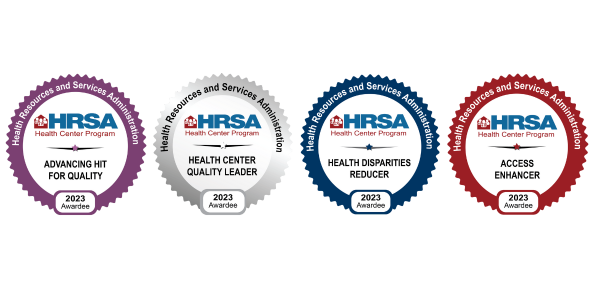1991 Five of the Clinic’s original rural, well child clinics in Jefferson and St. Lawrence counties closed due to federal and state funding cuts. Despite still receiving some funding from the St. Lawrence County Board of Legislators and due to federal funding cutbacks, and the advent of Managed Care, the remaining well child clinics closed in St. Lawrence, Franklin and Lewis Counties by the fall of 1996.
May 6, 1991 NCCC opened its first primary dental program at the Mercy Hospital in Watertown to serve Medicaid and uninsured patients. These services are now provided in our downtown Watertown facility at 238 Arsenal Street. The Dental program targeted children but also saw some adults in all community sites. Staff also provides dental care to soldiers at Ft. Drum and military family members.
May 1992 The Massena Primary Care program opened part-time and grew to full time in January 1996, with a full time pediatrician who was on the staff of Massena Memorial Hospital. The New York State Legislature, Catholic Charities, and the greater Massena community provided start-up funds for this clinic. That Clinic closed in December 1997 due to lack of physicians and funds.
October 1993 NCCC added Mental Health services in Watertown. A part-time clinical psychologist integrated the mental health services into the NCCC Pediatric Medical Program.
December 1993 NCCC opened its first School-Based Health Center at North Elementary School in the Watertown City School District. Children from the other five elementary schools in the district also used that new service, transportation being available via a van provided by the City School District.
1995 Children from 4-6th grades became eligible for care at the North Elementary site. The NYS Primary Care Initiative Grant, in-kind donations from the Watertown City School district, and private donations provided start-up funds for this program.
January 1994 The NCCC Dental Program opened a School-Based site at Watertown High School. This was the first school program in NY State to have a dentist on-site to provide treatment and preventive care. A dental hygienist is also available for preventive care. Start-up funds for this program came from the E.J. Noble Foundation and in-kind donations from the Watertown School District. The Northern New York Community Foundation was responsible for raising private funds to support both of the school-based programs’ start-up costs.
August 1994 Staff opened the NCCC Dental Program in downtown Ogdensburg. The NYS Department of Health, United Helpers, Ronald McDonald Children’s Charities, Travelers Foundation, Corning Foundation, NYNEX Foundation, and Chase Manhattan Foundation were the major donors of start-up funds for this project.
Fall 1996 The Watertown High School-Based Health Center opened. A nurse practitioner and a certified social worker, that provides mental health services, are present at WHS. A New York State Department of Health grant, TANF and HCRA funds assist with funding this program.
Fall 1996 NCCC opened a primary care clinic in Malone. Funds were raised from the community, the ALCOA Foundation and the Upper Hudson Primary Care Consortium for this clinic. Enrollment at this site reached 900 children in July 1998. This Clinic closed August 1, 1999 due to lack of physicians and funding.
April 1997 NCCC opened a third school-based clinic at Case Junior High School in Watertown with start up funds from the Northern New York Community Foundation. The clinic is staffed by a nurse practitioner.
1997 Financial problems prompted NCCC to slash $225,000 (9.5 FTEs) from the annual budget that included closing the Massena Primary Care Program at the end of December 1997. In early 1998, the Board of Directors and staff held a strategic planning session and developed a 5-year business plan to ensure increased agency profitability, increased quality of care and increased staff and community support.
1999 NCCC started a program in Watertown called Teen Talk in cooperation with the Family Y, local high schools, and other interested individuals to reach out to area teens that wanted help with teen-life issues. Motivated high school students who received intensive training answered a “warm line” for a few hours five evenings each week. The majority of the calls dealt with romantic and family issues of great importance to adolescents. State funds for this program ended June 30, 2001. NCCC discontinued this program in June 2004 due to lack of funds.
1999 NCCC implement a new Y2K-compliant billing system under a contract with Samaritan Medical Center. The transition was funded by $57,000 in funds from Bell Atlantic, Kinney Drugs, the ALCOA Foundation, and the John Ben Snow Foundation.



